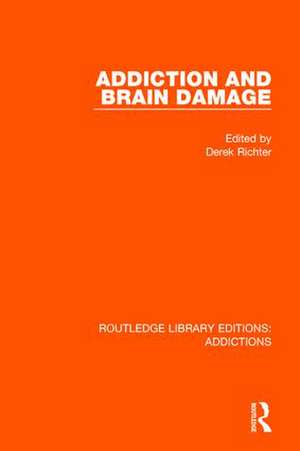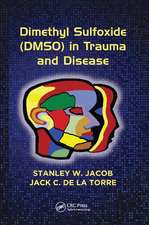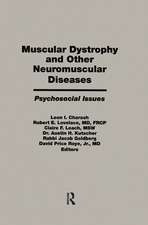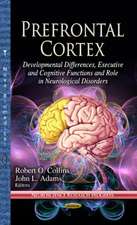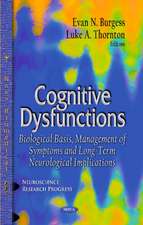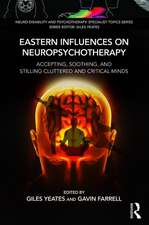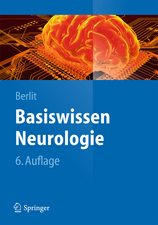Addiction and Brain Damage: Routledge Library Editions: Addictions
Editat de Derek Richteren Limba Engleză Paperback – 18 sep 2018
This book draws together the latest biochemical, physiological and clinical research on these topics at the time. The initial chapters discuss how alcohol can interfere with various functions: the adaptability of metabolic processes as governed by the ability of the liver to synthesise new enzymes, cell membrane transport, nervous transmission and the transport of nutrients into the brain. It is suggested that opiates, and possibly alcohol, may affect the endorphin system by blocking the uptake of specific amino acids.
The second half of the book reports clinical investigations using biochemical studies, psychological tests, EEG investigations and Computerised Axial Tomography (CAT) scanning. It gives the first report of a long-term study by Lishman and co-workers using an improved tomography technique to assess brain damage in alcoholics. These studies give convincing evidence that heavy drinking, even at socially-acceptable levels, can cause serious brain damage in vulnerable people.
| Toate formatele și edițiile | Preț | Express |
|---|---|---|
| Paperback (1) | 376.10 lei 6-8 săpt. | |
| Taylor & Francis – 18 sep 2018 | 376.10 lei 6-8 săpt. | |
| Hardback (1) | 874.91 lei 6-8 săpt. | |
| Taylor & Francis – 20 sep 2016 | 874.91 lei 6-8 săpt. |
Preț: 376.10 lei
Nou
Puncte Express: 564
Preț estimativ în valută:
71.96€ • 75.41$ • 59.49£
71.96€ • 75.41$ • 59.49£
Carte tipărită la comandă
Livrare economică 12-26 aprilie
Preluare comenzi: 021 569.72.76
Specificații
ISBN-13: 9781138210936
ISBN-10: 1138210935
Pagini: 308
Dimensiuni: 156 x 234 x 17 mm
Greutate: 0.45 kg
Ediția:1
Editura: Taylor & Francis
Colecția Routledge
Seria Routledge Library Editions: Addictions
Locul publicării:Oxford, United Kingdom
ISBN-10: 1138210935
Pagini: 308
Dimensiuni: 156 x 234 x 17 mm
Greutate: 0.45 kg
Ediția:1
Editura: Taylor & Francis
Colecția Routledge
Seria Routledge Library Editions: Addictions
Locul publicării:Oxford, United Kingdom
Public țintă
Postgraduate, Professional, and UndergraduateCuprins
Preface. Part 1: Biochemical and Physiological Mechanisms 1. The Effects of Alcohol on Metabolic Processes Hans Krebs 2. Catecholamine-derived Alkaloids in Dependence Virginia E. Davis, Jesse L. Cashaw and Kenneth D. McMurtrey 3. The Effects of Alcohol on the Cell Membrane: A Possible Basis for Tolerance and Dependence John M. Littleton 4. Metabolic Aspects of Ethanol Dependence and Tissue Damage Marie E. Bardsley and Keith F. Tipton 5. The Transport of Nutrients into the Brain: The Effect of Alcohol on their Supply and Utilisation Oliver E. Pratt 6. Anomolies in the Function of Dopamine Systems in Ethanol-withdrawn Animals B. Tabakoff, S. Urwyler and P.L. Hoffman 7. Opioid Peptides: Their Role in Drug Dependence Albert Herz Part 2: Clinical Investigations 8. The Effects of Ethanol on the Endocrine System Vincent Marks 9. Impairments of the Nervous System in Alcoholics Vladimir Hudolin 10. Computed Tomography of the Brain and Neuropsychological Assessment of Male Alcoholic Patients Hans Bergman, Stefan Borg, Thomas Hindmarsh, Carl-Magnus Ideström and Sture Mützell 11. Computed Tomography of the Brain and Psychometric Assessment of Alcoholic Patients – A British Study W.A. Lishman, M. Ron and W. Acker 12. Activity of Monoamines Oxidase and Brain Levels of Monoamines in Alcoholics C.G. Gottfries 13. Biochemical and CEEG Investigation of Drug Addicts: Preliminary Findings M. Del Vecchio, L. Vacca, F. Marciano, G. Nolfe, G. Iorio, M. Maj and D. Kemali 14. Vitamin Status in Brain-damaged Chronic Alcoholics Allan D. Thomson, S.A. Rae and A. Rowe 15. Brain Damage in Chronic Alcoholics: A Review of the Psychological Evidence Ralph E. Tarter 16. Conclusion G.K. Shaw. Notes of Contributors. Index.
Descriere
Biochemical level, alcohol and other drugs of abuse can impair metabolic and neuropsychiatric functions. Epidemiological studies also demonstrate that even moderate drinking or drug abuse can produce significant brain damage. First published in 1980, this book draws together biochemical, physiological and clinical research on these topics.
